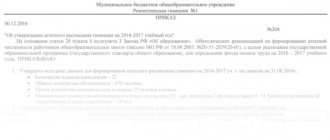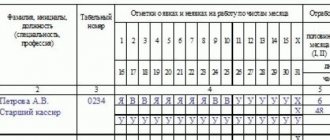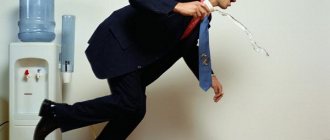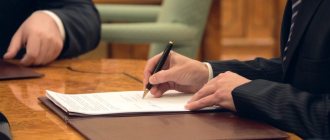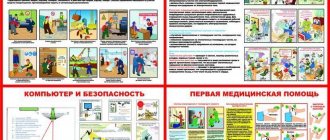In 2013, a professional teacher standard was developed, which, according to Federal Law No. 122, adopted in May 2020, is mandatory for use from January 1, 2020. Let's figure out what it is and why it is needed.
Raising and teaching children is a real art, which every teacher must master to one degree or another. However, at the present stage of life, a teacher is, first of all, a profession that, according to recent trends, must meet certain standards designed to replace outdated job descriptions and other documents regulating the professional activities of teachers.
That is why, back in 2013, a specially created working group chaired by Evgeniy Aleksandrovich Yamburg developed a professional teacher standard, covering, among other things, such issues as the reform of the system of advanced training for teachers, the modernization of the teacher education system and changes in the teacher certification system.
According to Federal Law No. 122, adopted in May 2020, this standard is mandatory for use from January 1, 2020. Let's figure out what it is and why it is needed.
Professional standard for a teacher - what is the point?
The professional standard of a teacher is a document that takes into account all the requirements for the personality and professional competence of teachers. Now the qualification level of a teacher will be assigned in accordance with this regulatory act. It should also be taken into account when hiring a teacher and when drawing up his job description.
The document for teachers describes in detail all the knowledge and skills that they must have, and also specifies labor actions depending on the focus of the work (preschool teacher, primary school teacher, subject teacher, etc.).
It is expected that thanks to the introduction of the professional standard, the basis of the Russian education system will be made up of real professionals who can work with a wide variety of categories of children (gifted, disabled, orphans, migrants, etc.) and effectively interact with other specialists (defectologists, psychologists, social educators and etc.).
Basic requirements of the teacher’s professional standard
The set of requirements for a teacher varies significantly, which is quite logical: to successfully work as a kindergarten teacher, certain skills are necessary, while for a specialist in the field of vocational training, others are required.
Professional standard for a teacher of primary general education (as well as preschool, basic and secondary general education - educator, teacher)
Approved by order of the Ministry of Labor of Russia No. 544n dated October 18, 2013 . One of the key skills of a primary school teacher is the ability to organize an effective educational process and convey knowledge to students in an easy, easy-to-understand form.
According to the requirements of the professional standard, the teacher must have a higher or secondary vocational education in the field corresponding to the subject being taught. Thanks to the amendments adopted in 2020, the profile of the education received does not necessarily have to be pedagogical: a bachelor in the specialty “information technology” can teach a school course in computer science, in the specialty “chemistry and environmental protection” - a school course in chemistry or ecology, etc. This minimizes the risk of “personnel shortage” in narrow specialties at the school level. This professional standard for a teacher does not apply to teachers teaching in higher educational institutions.
Professional standard for a specialist in the field of education
Approved by order of the Ministry of Labor of Russia No. 10n dated January 10, 2017 . Relevant for kindergartens and other preschool educational institutions (DOU), schools, lyceums and gymnasiums, social, pedagogical and valeological services.
The list of positions covered by the professional standard is very extensive: from a senior counselor at a children's camp to a teacher-librarian, tutor, social teacher. All are united by a common goal: to promote personal development and create favorable conditions for this.
Professional standard for vocational training teacher
Approved by order of the Ministry of Labor of Russia No. 608n dated September 8, 2015 . A vocational education teacher organizes the educational and production process, conducts career guidance events, trains students of universities and secondary vocational education organizations in programs at various levels (up to postgraduate and postgraduate studies), and also develops and improves teaching methods.
Requirements for the employee are formed taking into account the position held. For example, a master of industrial training only needs secondary vocational education in the area taught, while a methodologist needs a higher education.
Professional standard for additional education teacher
Approved by order of the Ministry of Labor of Russia No. 298n dated May 5, 2018 . Pedagogical workers-organizers specializing in additional education should pay maximum attention to the development in students of such qualities as the ability to work independently and conduct active cognitive activity.
To perform labor functions provided for by the professional standard, a higher or secondary pedagogical education is required, while experience is not considered a prerequisite. You can apply for the position of additional education teacher without any teaching experience. Two years of teaching experience gives the right to occupy a higher position - senior teacher.
Professional standard for teacher-psychologist
Approved by order of the Ministry of Labor of Russia No. 514n dated July 24, 2015 . An educational psychologist is involved in supporting the educational process: providing assistance to students who have difficulty mastering the program and needing additional social adaptation, conducting an examination of the comfort of the educational environment, and advising children and parents.
To work effectively, he needs teaching and psychological counseling skills, knowledge of the basics of pedagogy and legal norms that protect the rights of the child. And also - a complete higher specialized education; just a bachelor's degree or psychology courses is not enough.
Preparation for the introduction of professional standards
As mentioned above, the development of the document began back in 2013, and it was planned that everything would be finalized and tested (tested for suitability) before January 1, 2020. However, its introduction had to be postponed by 2 years due to great difficulties in development.
During this period, the document was finalized, and the standards themselves were tested on the basis of several dozen educational institutions. The results were generally positive:
- the level of student preparation has increased;
- working conditions for teachers have improved;
- Parents appreciated the changes well.
And as a result, from 2020 it was decided to begin the widespread implementation of the new professional standard for teachers.
Why do we need a standard?
According to Article 195.1 of the Labor Code of the Russian Federation, a professional standard (PS) is a characteristic of the level of qualifications that an employee of an organization or institution must have in order to carry out professional activities of a certain type, including the performance of all labor functions.
In other words, a professional standard is a document reflecting a list of skills, knowledge and abilities that a person requires in order to cope with his work responsibilities. Its use allows:
- Achieve improved quality of education.
The professional standard is a tool for implementing strategic educational objectives and gives a specialist the opportunity to successfully navigate the constantly changing conditions of the modern world. It also helps to improve the level of domestic education to international standards.
- Adequately assess the employee’s skill level.
The presence of a unified professional standard significantly speeds up and simplifies the process of assessing the qualification level of a secondary vocational education teacher.
- Successfully regulate the resolution of personnel issues and significant moments in labor relations with specialists.
All provisions given in the standard should be used when selecting teachers for educational institutions. The employment contract between the employee and the employer is also formed in accordance with the PS.
Important! Although the professional standard has its original form, in local institutions its content can be adjusted by introducing additional provisions and clarifying existing sections of the document.
Structure and content of the professional standard
The document is structured according to the principle of dividing the labor functions of a teacher , starting from preschool teachers and ending with mid-level teachers. The focus is on the three most important areas in which all educators must be competent:
- education;
- upbringing;
- development.
The description of each function includes three blocks: “Labor actions”, “Required skills” and “Required knowledge”. Further, the functions of teachers are divided depending on the focus of their work:
- Activities of preschool teachers.
- Activities of primary education teachers.
- Activities of teachers of basic and secondary education.
- Module “Subject training. Mathematics".
- Module “Subject training. Russian language".
In the same way, in each type of pedagogical activity, the labor actions, knowledge and skills of the teacher are specified.
Having studied all the requirements, we can come to the conclusion that a modern teacher must be universally educated, erudite and progressive. The emphasis is also placed on the ability to find an approach to each child, respect his personality and correctly assess his abilities.
Professional standards of a sports teacher
All-Russian classifier of types of economic activity. N/03.7
“Professional support for assistants and teachers, quality control of their training sessions”
carried out by those holding the position of senior teacher.
Articles 331, 351.1 of the Labor Code of the Russian Federation of December 30, 2001 N 197-FZ (Collection of Legislation of the Russian Federation, 2002, N 1, Art.
308, 2010, N 52, art. 7002, 2013, N 27, art.
3477, 2014, N 52, art. 7554.2015, N 1, art. 42). Articles 69, 213 of the Labor Code of the Russian Federation of December 30, 2001
N 197-FZ (Collection of Legislation of the Russian Federation, 2002, N 1, Art. 3, 2004, N 35, Art. 3607, 2006, N 27, Art.
2878, 2008, N 30, art. 3616, 2011, N 49, art. 7031, 2013, N 48, art. 6165, N 52, art. 6986); Article 48 of the Federal Law of December 29, 2012 N 273-FZ “On Education in the Russian Federation” (Collected Legislation of the Russian Federation, 2012, N 53, Art.
7598); Order of the Ministry of Health and Social Development of Russia dated April 12, 2011
Professional standard “Teacher of vocational training, vocational education and additional vocational education”
APPROVED by order of the Ministry of Labor and Social Protection of the Russian Federation dated September 8, 2020 No. 608n Pedagogical activities in vocational training, vocational education, additional vocational education 01.
004 (name of the type of professional activity) Organization of students’ activities to master knowledge, form and develop skills and competencies that allow them to carry out professional activities, ensuring that they achieve the normatively established educational results; creating pedagogical conditions for the professional and personal development of students, meeting the needs for deepening and expanding education; methodological support for the implementation of educational programs (OKZ code) (name) (OKVED code) (name) Generalized labor functions Labor functions code name qualification level name code qualification level (sublevel) A 6 A/01.6 6.1 A/02.6 6.1 A/03.6 6.2 B 6 B/01.6 6.1 B/02.6 6.1 B/03.6 6.2 C 6 C/01.6 6.1 C/02.6 6.1 D 6 D/01.6 6.1 D/02.6 6.1 E 6 E/01.6 6.1 E/02.6 6.1 F 6 F/01.6 6.3 F /02.6 6.3 F/03.6 6.3 G 7 G/01.7 7.3 G/02.7 7.3 H 7 H/01.6 6.2 H/02.6 6.2 H/03.7 7.1 H/04.7 7.1 I 8 I/01.7 7.2 I/02.7 7.3 I/03.7 7.2 I /04.8 8.1 J 8 J/01.7 7.3 J/02.8 8.2 J/03.8 8.2 J/04.8 8.2 J/05.8 8.2 J/06.8 8.3 Federal State Institution “Federal Institute for Educational Development” (“FIRO”), Moscow Asmolov Alexander Grigorievich 1.
ANO "National Agency for the Development of Qualifications", Moscow 2. OGOU DPO
"Irkutsk Institute for Advanced Training of Education Workers"
, Irkutsk city 3. ANO
"Center for Development of Education and Personnel Certification Universum"
, Chelyabinsk city 4.
Institute of System Analysis and Management in Professional Education FSBEI HPE "Russian Peoples' Friendship University" (RUDN), Moscow 5.
NOCHE DPO "Medical Dental Institute", Moscow 6. FSBEI HPE "Moscow State University of Culture and Arts" (MGUKI), Moscow 7. FSBEI DPO "Institute for the Development of Further Vocational Education", Moscow 8.
FSBEI SPO "St. Petersburg Medical and Technical College" of the Federal Medical and Biological Agency, St. Petersburg Made in St. Petersburg © 1997 - 2020 PPT.
RU Complete or partial copying of materials is prohibited; in case of agreed copying, a link to the resource is required. Your personal data is processed on the site for the purpose of its functioning.
If you do not agree, please leave the site.
Are you sure you want to remove the image you're using and replace it with your default avatar? Are you sure you want to go out?
The teacher is prohibited from: - providing paid educational services to students in this organization if this leads to a conflict of interests of the teacher; - using educational activities for political agitation, forcing students to accept political, religious or other beliefs or renounce them, to incite social, racial, national or religious hatred, for agitation promoting the exclusivity, superiority or inferiority of citizens on the basis of social, racial, national, religious or linguistic affiliation, their attitude towards religion, including by communicating to students false information about historical, national, religious and cultural traditions of peoples, as well as to encourage students to take actions contrary to the Constitution of the Russian Federation.1.6.
The teacher is appointed to the position and dismissed from it by order of [name of the manager's position]. 2.1.
NVersion for the visually impaired
Education Educational activities Developmental activities Pedagogical activities for the implementation of preschool education programs Pedagogical activities for the implementation of primary general education programs Pedagogical activities for the implementation of basic and secondary general education programs teacher Teaching in vocational training programs, secondary vocational education (SVE) and additional professional programs (APP) , focused on the appropriate level of qualifications Organization of educational activities of students in mastering academic subjects, courses, disciplines (modules) of vocational training programs, secondary vocational education and (or) DPP Pedagogical control and assessment of mastering the educational program of vocational training, secondary vocational training and (or) DPP in the process of intermediate and final certification Development of software and methodological support
Professional standard for a sports teacher
At the same time, training in DPP in order to ensure that the qualifications of a teaching worker meet the requirements of the PS must be carried out at the expense of the employer.
Additionally, please note that, according to paragraph 23 of the order of the Ministry of Education and Science of Russia dated April 7, 2014 No. 276
“On approval of the Procedure for certification of teaching staff of organizations engaged in educational activities”
(registered by the Ministry of Justice of Russia on May 23, 2014
, registration No. 32408), certification commissions of organizations give recommendations to the employer on the possibility of appointing to the appropriate positions of teaching staff persons who do not have special training or work experience established in the section “Qualification Requirements” of the section “Qualification Characteristics of Positions of Education Workers” of the Unified Qualification Directory of Positions managers, specialists and employees and (or) professional standards, but with sufficient practical experience and competence, performing their job responsibilities efficiently and in full.
Professional standard of a secondary vocational education teacher, its key points and features
The section is devoted to indicating the general names of labor functions, and it also provides a code classification of the type of activity of a specialist. Functional map. The second part contains descriptions of the general functions that a teacher should perform.
The third section also contains a detailed listing of all the skills and knowledge that a teacher will need to successfully complete the tasks assigned to him.
The last (4th) part of the document contains information about the organizations that were involved in the development of the software.
Professional standard for a university teacher
No. 23 (Collected Legislation of the Russian Federation, 2013, No. 4, Art. 293; 2014, No. 39, Art. 5266).
In accordance with this document, in order to occupy the position of professor (teaching in postgraduate (adjunct) programs, residency, assistantship-internship and additional training, it is necessary to meet the following qualification requirements: higher education - specialty, master's degree, postgraduate study (adjunct), residency, assistantship - internship, the focus (profile) of which, as a rule, corresponds to the taught educational course, discipline (module), for teaching in residency programs (in addition to the general requirements) - higher medical or higher pharmaceutical education or other higher education and professional retraining in the field corresponding residency specialty and (or) the taught training course, discipline (module) and [work experience in the field of professional activity mastered by students, or corresponding to the taught training course, discipline (module) - if the focus (profile) of education does not correspond to the taught training course, discipline ( module) / experience in scientific and pedagogical work of at least five years / professional experience corresponding to the specialty of residency, as a rule, at least three years - for teaching in residency programs / work experience in educational organizations of HE for at least ten years - for general management of implementation OOP assistantship-internship], experience and systematic studies in scientific, methodological, artistic and creative or other practical activities corresponding to the focus (profile) of the educational program.
Job description of a teacher (teaching in vocational training programs, vocational training and additional education, focused on the appropriate level of qualifications) [
Job responsibilities The teacher is assigned the following job responsibilities: 2.1. Conducting training sessions in academic subjects, courses, disciplines (modules) of the educational program.
2.2. Organization of independent work of students in academic subjects, courses, disciplines (modules) of the educational program. 2.4.
Consulting students and their parents (legal representatives) on issues of professional self-determination, professional development, professional adaptation based on monitoring the development of professional competence (for teaching an academic subject, course, discipline (module) focused on mastering qualifications (professional
Professional standard for a vocational education teacher: what, why and why?
The general names of labor functions and occupation classification codes are defined here.
Functional map. This section describes the general functions that a teacher must perform. General functions can also be divided into several specific narrow functions.
For each of them the corresponding level of qualification is indicated.
Characteristics of functions. A detailed explanation of the positions of the functional map contains a list of specific actions to perform each function. The necessary skills and knowledge that a teacher should have are also indicated.
Professional standards of vocational education teachers are of great importance for the modern educational sphere. Improving the quality of education. A professional standard is a tool for implementing education strategies in a constantly changing and developing world.
With their help, domestic education will reach the international level. Qualification assessment.
How will the transition to new standards take place?
At the moment, there is no uniform plan for transition to the new standard for all institutions. Obviously, the management of each educational organization will, at its own discretion, include certain measures for the implementation of pedagogical professional standards in an educational institution. However, in any case, a commission will have to be responsible for the introduction of professional standards, which will roughly be required to do the following:
- Compare the positions held in a particular institution with the names that are prescribed in the standard.
- Check employment contracts and, if necessary, make adjustments in accordance with professional standards.
- Inspect educational institution employees for compliance with professional standards, according to their positions.
- Provide management with a final report of the audit.
True, it is not yet entirely clear what to do with teachers who do not meet the professional standard. If such an employee was initially hired in accordance with labor legislation, successfully passed certification and generally does a good job, then it is not advisable to fire him, even taking into account partial non-compliance with the emerging standards.
Professional standard “Teacher”: explanations from a lawyer
Current material: “The Ministry of Education explained the procedure for applying the professional standard “Teacher””
Dear Colleagues! The union lawyer has answered many of your questions, but he cannot do so on a regular basis. It is mandatory that we consult only trade union members. Look for the answer to your question in the text of the article and among the comments.
Most often, we receive questions about the possibility of teaching a subject that is not listed on the education diploma. The answer to this is contained in section 5 “The main consequences of the introduction of professional standards.” You need to see whether the specialty you received belongs to the enlarged group of specialties according to the All-Russian Classifier.
Problems of implementing a professional standard
While many teachers find it difficult to fulfill all the requirements of the professional standard. In particular, they say that it is problematic to do this today due to:
- insufficient material and technical base of educational organizations,
- poorly developed accessible environment for all students (ramps, entrances to buildings, etc.),
- There is too much workload on one teacher to count on an individual approach to each student.
However, even if today not every teacher can boast of full compliance with all the criteria of the professional standard, it should be considered as a guideline in their teaching activities and gradually improved in order to better approach the training and education of the younger generation.
Subscribe to our Telegram to stay up to date with important news in the field of education.
Even K. D. Ushinsky wrote: “In the matter of teaching and upbringing, in the entire school business, nothing can be improved without going past the head of the teacher.” In a rapidly changing open world, the main professional quality that a teacher must constantly demonstrate to his students is the ability to learn.
On January 1, 2020, a new Professional Teacher Standard was adopted. The question immediately arises: why change anything? Answer: a modern school needs modern teachers!
In order to understand this issue in detail, you need to study the term “Professional Standard of a Teacher” itself.
The standard is a tool for implementing education strategies in a changing world.
The standard is a tool for improving the quality of education and bringing domestic education to the international level.
The standard is an objective measure of a teacher’s qualifications.
The standard is a means of selecting teaching staff for educational institutions.
The standard is the basis for the formation of an employment contract that fixes the relationship between the employee and the employer.
A professional standard is a characteristic of the qualifications required for an employee to carry out a certain type of professional activity.
The teacher is a key figure in education reform. Readiness for change, mobility, the ability to take non-standard work actions, responsibility and independence in decision-making - all these characteristics of the activities of a successful professional fully apply to the teacher.
Thus, the professional standard of a teacher is a document that includes a list of professional and personal requirements for a teacher, valid throughout the Russian Federation, which began on January 1, 2020. This means that employers are required to apply it when forming personnel policies and in personnel management, when organizing training and certification of employees, concluding employment contracts, developing job descriptions and establishing remuneration systems.
The professional standard of a teacher, which should replace the obsolete documents that until now regulated his activities, is intended, first of all, to liberate the teacher and give a new impetus to his development. You cannot demand from a teacher something that no one has ever taught him. Consequently, the introduction of a new professional standard for a teacher should inevitably entail a change in the standards of his training and retraining in higher education and in advanced training centers.
The practical application of the professional standard can be briefly formulated:
for the employer: - formulation of requirements for employees.
for the employee - assessment of the compliance of his or her existing competencies with the requirements of the labor market and a specific employer.
for the system of professional pedagogical education - the development of educational standards and programs that meet the requirements of the labor market.
Adaptation to the standard of teacher activity
The professional standard for a teacher has been developed over the past 3 years, 2 of which experts have devoted to testing new norms and requirements. The structure of the regulatory document, which came into force in 2020, clearly divides the rules into three fundamental areas:
Education. A pedagogical worker must have an impeccable command of his subject and use the most advanced educational methods in his work.
Upbringing. Any teacher is an example for the younger generation, which predetermines the demonstration of appropriate qualities.
Development. The duty of a teacher is to teach how to learn, to explain the benefits and necessity of self-development and self-education as integral components of any educational process.
As practice has shown, the first section does not cause any particular difficulties for understanding and gradual adaptation of teaching staff to the formulated requirements. The remaining two are not so much more complex as they are difficult to implement. In fact, they expand the competence of a pedagogical worker to the level of a universal specialist who has the skills of a teacher, psychologist, speech pathologist, and child therapist. This is a kind of “school doctor” who knows how to cope with problem children, how to find an approach to each student, how to convey the required information to him, how to determine his potential capabilities, etc. Here we need to recall that today there is an active narrow specialists (defectologists and psychologists) are being laid off, and this work is being carried out as part of “optimizing the staffing schedule of employees of educational institutions and finding funds to increase the amount of remuneration for their labor.”
Characteristics of the standard
· The professional standard of a teacher is a framework document that defines the basic requirements for his qualifications.
· The nationwide framework of the standard can be supplemented by regional requirements that take into account the sociocultural, demographic and other characteristics of a given territory
· The professional standard of a teacher can also be supplemented by the internal standard of an educational institution in accordance with the specifics of the educational programs implemented in this institution (school for the gifted, inclusive school, etc.).
· The professional standard of a teacher is level-based, taking into account the specifics of the work of teachers in preschool institutions, primary, secondary and high schools.
· The professional standard of a teacher reflects the structure of his professional activity: teaching, upbringing and development of the child.
· The standard puts forward requirements for the personal qualities of a teacher, inseparable from his professional competencies, such as: readiness to teach all children without exception, regardless of their inclinations, abilities, developmental characteristics, or disabilities.
Now let’s look at the structure of the professional standard.
The professional standard consists of several parts.
General information: it says here what types of education the Professional Standard of a Teacher refers to, namely preschool education, primary general education, basic general education and secondary general education.
Description of labor functions included in the professional standard (functional map of the type of professional activity
General pedagogical function. Training (29 points),
Educational activities (29 points),
Developmental activities (29 points),
Pedagogical activities for the design and implementation of basic general education programs (3 points),
Pedagogical activities for the implementation of preschool education programs (26 points),
Pedagogical activities for the implementation of primary general education programs (16 points),
Pedagogical activities for the implementation of basic and secondary general education programs (29 points),
Considering the special place and role in general secondary education of such subjects as mathematics and the Russian language, and the mandatory requirement of passing them in the form of the Unified State Exam for all school graduates without exception, the appendices to the document separately highlight the professional standards of teachers in these specialties.
Module “Subject training. Mathematics" (44 points),
Module “Subject training. Russian language" (26 points).
I’ll tell you more about the first three points.
When teaching children, the teacher must:
1. Have a higher education. Teachers who have specialized secondary education and are currently working in preschool organizations and primary schools should be given the conditions to receive it without interrupting their professional activities.
2. Demonstrate knowledge of the subject and curriculum.
3. Be able to plan, conduct lessons, analyze their effectiveness (lesson self-analysis).
4. Be proficient in forms and methods of teaching that go beyond lessons: laboratory experiments, field practice, etc.
5. Use special approaches to teaching in order to include all students in the educational process:
with special educational needs;
gifted students;
students for whom Russian is not their native language;
students with disabilities, etc.
6. Be able to objectively assess students’ knowledge using different forms and methods of control.
7. Possess ICT competencies
When constructing educational work with children, the teacher must:
1. Master the forms and methods of educational work, using them both in class and in extracurricular activities.
2. Know the methods of organizing excursions, hikes and expeditions.
3. Master the methods of museum pedagogy, using them to broaden the horizons of students.
4. Effectively manage student behavior to ensure a safe learning environment.
5. Effectively manage classes in order to involve students in the process of learning and education, motivating their educational and cognitive activities. Set educational goals that contribute to the development of students, regardless of their origin, abilities and character, and constantly look for pedagogical ways to achieve them.
6. Establish clear rules of behavior in the classroom in accordance with the school charter and rules of conduct in the educational organization.
7. Provide comprehensive assistance and support in organizing student self-government bodies.
8. Be able to communicate with children, recognizing their dignity, understanding and accepting them.
9. Be able to find (discover) the value aspect of educational knowledge and information and ensure its understanding and experience by students.
10. Be able to design and create situations and events that develop the child’s emotional and value sphere (the child’s culture of experiences and value orientations).
11. Be able to discover and implement (embody) the educational possibilities of various types of child activities (educational, play, work, sports, artistic, etc.).
12. Be able to build educational activities taking into account the cultural differences of children, gender, age and individual characteristics.
13. Be able to create child-adult communities of students, their parents and teachers in study groups (class, club, section, etc.).
14. Be able to support the constructive educational efforts of parents (persons replacing them) of students, involve the family in resolving issues of raising the child.
15. Be able to cooperate (interact constructively) with other teachers and specialists in solving educational problems (tasks of the child’s spiritual and moral development).
16. Be able to analyze the real state of affairs in the classroom, maintain a business-friendly atmosphere in the children's team.
17. Be able to protect the dignity and interests of students, help children who find themselves in a conflict situation and/or unfavorable conditions.
18. Maintain the way of life, atmosphere and traditions of school life, making a positive contribution to them.
Personal qualities and professional competencies necessary for a teacher to carry out developmental activities
1. Willingness to accept different children, regardless of their actual educational capabilities, behavioral characteristics, state of mental and physical health. Professional attitude towards helping any child.
2. The ability, during observation, to identify various problems of children associated with the characteristics of their development.
3. The ability to provide targeted assistance to the child with one’s pedagogical techniques.
4. Willingness to interact with other specialists within the framework of a psychological, medical and pedagogical consultation.
5. Ability to read documentation from specialists (psychologists, speech pathologists, speech therapists, etc.).
6. The ability to draw up, together with other specialists, a program for the individual development of a child.
7. Possession of special techniques that allow carrying out correctional and developmental work.
8. The ability to monitor the dynamics of a child’s development.
9. The ability to protect those who are not accepted in the children's group.
10. Knowledge of the general patterns of personality development and the manifestation of personal properties, psychological laws of periodization and developmental crises, age characteristics of students.
11. The ability to use psychological approaches in the practice of their work: cultural-historical, activity-based and developmental.
12. The ability to design a psychologically safe and comfortable educational environment, to know and be able to prevent various forms of violence in school.
13. The ability (together with a psychologist and other specialists) to provide psychological and pedagogical support for educational programs of primary and secondary general education, including additional education programs.
14. Knowledge of basic methods of psychodiagnostics of personal characteristics and age characteristics of students, monitoring of the child’s personal characteristics together with a psychologist.
15. The ability (together with a psychologist and other specialists) to draw up a psychological and pedagogical characteristics (portrait) of the student’s personality.
16. The ability to develop and implement individual development programs taking into account the personal and age characteristics of students.
17. The ability to form and develop universal learning activities, patterns and values of social behavior, behavioral skills in the world of virtual reality and social networks, multicultural communication skills and tolerance, key competencies (according to international standards), etc.
18. Proficiency in psychological and pedagogical technologies (including inclusive ones) necessary for working with various students: gifted children, socially vulnerable children in difficult life situations, migrant children, orphans, children with special educational needs (autists, ADHD, etc.), children with disabilities, children with behavioral deviations, children with addiction.
19. The ability to form child-adult communities, knowledge of their socio-psychological characteristics and patterns of development.
20. Knowledge of the basic patterns of family relationships that allow you to work effectively with the parent community.
Characteristics of generalized labor functions
Requirements for education and training (Higher vocational education or secondary vocational education in the areas of training “Education and Pedagogy” or in the field corresponding to the subject being taught (with subsequent professional retraining in the profile of pedagogical activity), or higher vocational education or secondary vocational education and additional professional education in the field of activity in an educational organization),
Requirements for practical work experience (There are no requirements for practical work experience),
Special conditions for admission to work (Persons are not allowed to engage in teaching activities: those who are deprived of the right to engage in teaching activities in accordance with a court verdict that has entered into legal force; who have or have had a criminal record for crimes, the composition and types of which are established by the legislation of the Russian Federation; those recognized as incompetent in accordance with federal law order; having diseases provided for in the established list).
The labor function, in turn, includes four components: labor actions, necessary knowledge, necessary skills and other characteristics.
Thinking about this topic, I would like to note that all the activities of a teacher, of course, cannot be limited only to the certain framework dictated by the new document “Professional Standard of a Teacher.” In a teacher’s work there is always room for pedagogical creativity that goes beyond the prescribed rules.
A modern teacher is a person who is able to smile and be interested in everything that surrounds him, because the school is alive as long as the teacher is interesting to the child. Who is a modern teacher? I think the answer lies in the word TEACHER: people are unique, smart, successful, versatile, able to teach material well; honest, humane, sensitive, with a sense of humor; sincere, individual; tactful, tolerant, patient; natural, like-minded people; loving children, loving their work. And very soft, like a soft sign and the word itself!
The famous Russian psychotherapist A.M. Kashpirovsky owns the following words: “The teacher is not the one who teaches, but the one from whom they learn.” This phrase could become the epigraph of a new bill, which is intended to outline the requirements for teachers - representatives of one of the most important professions in modern society.
Is it necessary to use it?
According to the developers of the professional standard intended for teachers of secondary vocational education, this document should have a positive impact on the teacher’s interest in the field of his work and increase the level of responsibility for achieving the required results.
The professional standard allows the teacher not to be distracted by performing functions that are not related to his direct responsibilities. This allows you to free up more energy and time for improving your teaching qualifications.
Thus, the use of the professional standard is not strictly mandatory, but its use is recommended in order to improve the qualifications of individual specialists and strengthen the educational system as a whole.
Main responsibilities according to the document
A secondary vocational education teacher is a teacher of basic and additional vocational training and education. In accordance with the professional standard, his main responsibilities include:
- teaching in accordance with the programs: vocational training, obtaining secondary vocational education, completing an additional vocational program designed for a certain qualification level;
- organization and conduct of the educational and production process during the implementation of the necessary training programs;
- organizational and pedagogical support for students in secondary vocational education and higher education programs;
- organizing and conducting events dedicated to career guidance for school students and their legal representatives;
- implementation of pedagogical control, assessment of the results of educational activities, mastering the program;
- preparation and independent development of scientific, educational and methodological support necessary for the implementation of vocational education programs.
Also, a secondary vocational education teacher can teach undergraduate, graduate, specialist and postgraduate programs within his specialty.

